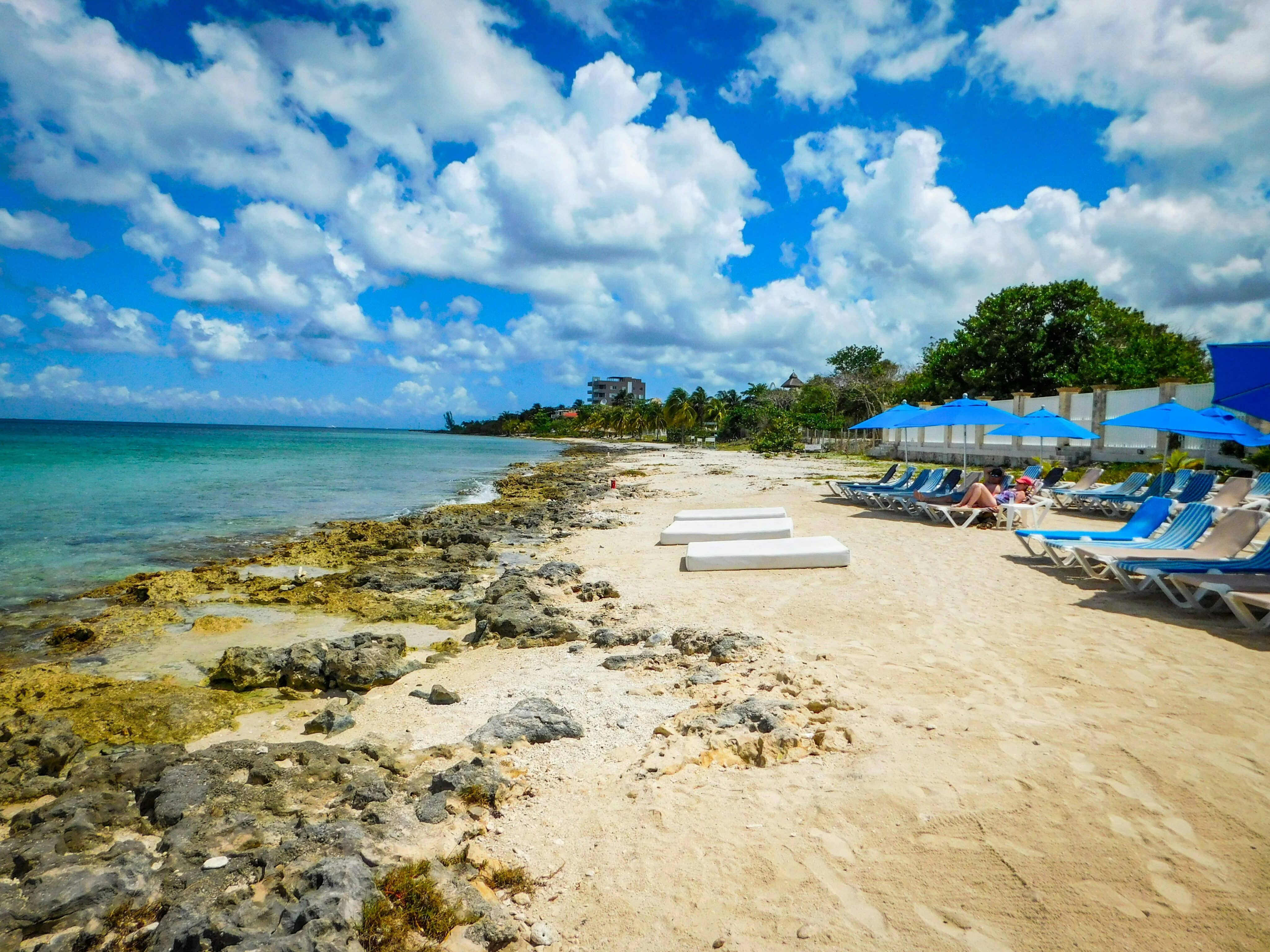Introduction to Summer 2024 Travel Trends
As we approach the summer of 2024, the landscape of travel continues to evolve, marked by significant shifts in preferences and priorities. Emerging from the constraints of the global pandemic, travelers are now more discerning than ever, seeking experiences that are not only enjoyable but also meaningful and responsible. This year, the spotlight is on sustainable and experiential journeys, reflecting a broader societal move towards mindful living and environmental consciousness.
Post-pandemic, the travel industry has witnessed a notable transformation. Gone are the days when sheer volume and speed of travel were the primary indicators of a successful trip. Today, travelers prioritize sustainability, wellness, and immersive experiences. This shift is driven by a collective recognition of the environmental impact of travel and a desire to engage deeply with local cultures and landscapes.
In the upcoming sections, we will delve into the core themes defining summer 2024 travel trends. Readers can look forward to insights on how sustainability is shaping travel choices, the rise of wellness-focused trips, and the growing popularity of immersive experiences that allow for genuine cultural exchange. From eco-friendly accommodations to activities that promote local economies and cultures, the trend towards sustainable and experiential journeys is paving the way for a more conscientious and enriching travel experience.
As we explore these themes, it becomes clear that the future of travel lies in creating connections— with nature, with local communities, and within ourselves. Join us as we uncover the hottest travel trends for summer 2024, offering a roadmap for planning trips that are not only memorable but also mindful and impactful.
Sustainable Travel: Making Eco-Friendly Choices
The trend of sustainable travel is becoming a significant focus for summer 2024, as more travelers prioritize eco-friendly choices. This growing awareness has led to a dramatic shift in how people plan their vacations, emphasizing eco-conscious accommodations, transportation, and activities. Travelers are now more inclined to choose green hotels that implement energy-saving measures, waste reduction practices, and use sustainable materials.
Eco-friendly destinations such as Costa Rica, known for its extensive national parks and biodiversity, and Iceland, with its geothermal energy and green energy initiatives, are gaining popularity. These destinations offer travelers the opportunity to experience natural beauty while ensuring their visit leaves a minimal environmental impact. Additionally, travelers are opting for carbon-offset programs to neutralize the emissions from their flights and other travel-related activities.
Transportation choices also reflect this trend, with an increase in the use of electric and hybrid vehicles, as well as a greater emphasis on public transport and cycling. Activities that connect travelers with nature, such as hiking, wildlife watching, and eco-tours, provide immersive experiences without compromising the environment.
Supporting local communities has become an essential aspect of sustainable travel. Travelers are encouraged to patronize locally-owned businesses, participate in cultural exchanges, and engage in volunteer opportunities that benefit the host communities. This not only helps in preserving the local culture but also ensures that tourism dollars are reinvested into the community.
Moreover, travelers are becoming more educated about the certifications and initiatives that signify a commitment to sustainability. Eco-labels such as Green Key, EarthCheck, and the Global Sustainable Tourism Council (GSTC) certification are increasingly sought after. These certifications ensure that the accommodations and services meet stringent environmental and social standards.
By making conscious choices in their travel plans, tourists can significantly reduce their carbon footprint, support local economies, and contribute to the preservation of natural environments. The rise of sustainable travel is not just a trend but a necessary evolution in how we explore the world responsibly.
Experiential Journeys: Immersive and Authentic Experiences
In the evolving landscape of travel, experiential journeys have emerged as a prominent trend, diverging from conventional sightseeing to embrace immersive and authentic experiences. This shift reflects a growing desire among travelers to deeply engage with local cultures, cuisines, and traditions, fostering a more meaningful connection to the destinations they visit.
One notable aspect of this trend is the increasing popularity of activities that allow travelers to interact closely with local communities. For instance, cooking classes with local chefs not only provide a hands-on culinary experience but also offer insights into the cultural significance of traditional dishes. Guided cultural tours led by knowledgeable locals can reveal the stories and histories that shape a place, while community-based tourism initiatives enable visitors to contribute positively to local economies and environments.
These immersive experiences are not merely about participation; they are about personal growth and the forging of meaningful connections. Travelers often find that engaging deeply with local customs and traditions enriches their understanding of the world and themselves. By stepping beyond the role of an observer, they become active participants in the cultural tapestry of their destinations.
Several destinations are particularly renowned for their rich cultural heritage and opportunities for authentic engagement. For example, Kyoto, Japan, offers a blend of ancient traditions and modern living, with tea ceremonies and kimono-wearing experiences providing a window into Japanese culture. Similarly, the vibrant markets and historic sites of Marrakech, Morocco, invite visitors to explore the intricacies of Moroccan life through guided tours and artisanal workshops. Closer to nature, the indigenous communities of Costa Rica welcome travelers to partake in sustainable practices that honor their ancestral lands.
Overall, the trend towards experiential journeys underscores a broader movement towards travel that prioritizes depth over breadth. By seeking out immersive and authentic experiences, travelers are not only enriching their own lives but also fostering a greater appreciation for the diverse and dynamic world we inhabit.
Wellness Tourism: Prioritizing Health and Well-being
In recent years, wellness tourism has emerged as a significant trend, aligning seamlessly with the broader themes of sustainable and experiential travel. As travelers increasingly prioritize their health and well-being, destinations that offer holistic and rejuvenating experiences are gaining popularity. Wellness tourism encompasses a broad spectrum of activities and destinations that focus on physical, mental, and spiritual well-being, allowing travelers to return home revitalized and balanced.
Wellness retreats have become a cornerstone of this trend, offering an array of programs designed to cater to the diverse needs of travelers. These retreats often include yoga and meditation holidays, which provide a sanctuary for individuals to disconnect from the hustle and bustle of everyday life and reconnect with their inner selves. Such programs typically feature daily yoga sessions, guided meditation practices, and workshops on mindfulness, nutrition, and holistic health.

Nature-based activities are also at the forefront of wellness tourism, with hiking and forest bathing becoming increasingly popular. Hiking trails through pristine landscapes offer not only physical exercise but also an opportunity to immerse oneself in nature, promoting mental clarity and stress relief. Forest bathing, a practice originating in Japan known as “shinrin-yoku,” involves leisurely walks in a forested area, which has been scientifically proven to reduce stress levels and enhance overall well-being.
Several destinations have positioned themselves as top wellness hubs, offering a wide range of amenities and programs. For instance, Bali in Indonesia is renowned for its wellness retreats that combine traditional healing practices with modern wellness techniques. Thailand’s Chiang Mai offers numerous yoga retreats set amidst serene natural surroundings, while Costa Rica’s lush rainforests provide the perfect backdrop for eco-friendly wellness resorts that emphasize sustainability and natural healing.

Incorporating wellness into travel plans is essential for ensuring a balanced and rejuvenating experience. Whether it is through dedicated wellness retreats, engaging in yoga and meditation, or embracing nature-based activities, travelers are increasingly seeking out experiences that promote holistic health. This shift towards wellness tourism not only enhances personal well-being but also supports sustainable travel practices by encouraging a deeper connection with nature and local cultures.





